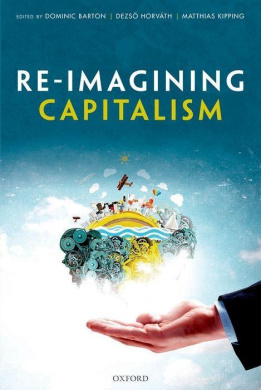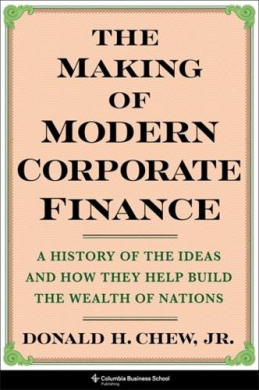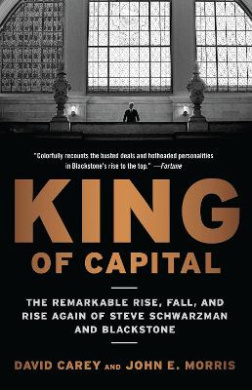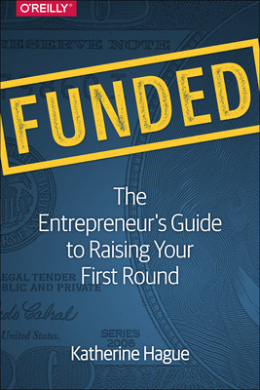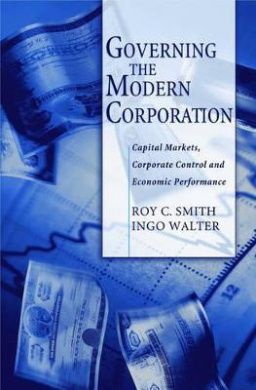Description
Following the financial and economic crisis in 2008, came broad-based recognition that free market economies need to be reformed in the direction of a more stable, equitable, and sustainable model of capitalism in order to ensure its survival. This volume provides suggestions of what such a model should look like and how it can be achieved. Dominic Barton is the global managing director of McKinsey. Since joining the firm in 1986, Dominic has advised clients in a range of industries, including banking, consumer goods, high tech, and industrial. Before becoming global managing director, Dominic served as McKinsey’s chairman in Asia from 2004-09, based in Shanghai, and led McKinsey’s office in Korea from 2000-04. Dominic leads McKinsey’s work on the future of capitalism, long-term value creation, and the role of business leadership in society. He has authored more than 80 articles on capitalism, leadership, financial-market development, Asia, history, and the issues and opportunities facing global and Asian markets. He is the co-author, with Roberto Newell and Greg Wilson, of Dangerous Markets: Managing in Financial Crises (Wiley & Sons, 2002). His most recent book is China Vignettes: An Inside Look at China (Talisman, 2007).; Dezso J. Horvath is Dean and Tanna H. Schulich Chair in Strategic Management at the Schulich School of Business, York University, where he has been a member of the faculty since 1977. He holds an electrical engineering degree, a Master’s degree in Business Administration, and Licentiate and PhD degrees in Management from Sweden. In addition to his role as Dean, Dr. Horvath is a director of a number of companies and organizations and serves on the advisory board of various business schools around the world. He was named 2004 Dean of the Year by the Academy of International Business (AIB), the world’s leading association of scholars in the field of international business, in recognition of his outstanding leadership in various aspects of internationalization, including programs, research and curriculum development, and outreach. In 2008 he was made a Member of the Order of Canada, the country’s highest civilian honour, for his academic leadership and sustained commitment to business education.; Matthias Kipping is Professor of Policy, Chair in Business History, and Director of the Kellogg-Schulich Executive MBA program at the Schulich School of Business. He teaches courses on global management in the undergraduate, MBA and Executive MBA programmes. Matthias has degrees from the University of Munich in Germany, the Sorbonne in Paris and Harvard’s John F. Kennedy School of Government. He held previous appointments at the University of Reading in the UK and Universitat Pompeu Fabra in Barcelona. His main research interest has been the international transfer of management knowledge, with a particular focus on the role of management consultants and management education – topics on which he has published widely. 1 Dominic Barton, Dezso Horvath and Matthias Kipping: Re-imagining Capitalism for the Long Term: Situating the Volume; Part I. Trailblazing: The Role of Exemplary Leadership; 2 Paul Polman: Re-establishing Trust: Making Business with Purpose the Purpose of Business; 3 Kathleen McLaughlin and Doug McMillon: Business and Society: Reshaping Global Systems; 4 Galen G. Weston: Family Firms and Patient Capital: Thinking in Decades, not Quarters; 5 Monique Leroux: Cooperatives: Stakeholder-oriented by Design, Long-term Focused by Necessity; 6 Ratan N. Tata (with Dirk Matten): Corporate Community Involvement in the 21st Century; 7 Nick Lovegrove and Matthew Thomas: Broad: The Gifts of Breadth in a World Sold on Depth; Part II. Engaging: Broader Views for a Better Capitalism; 8 John Kay: Understanding and Misunderstanding the Triumph of Capitalism; 9 Andrew Crane and Dirk Matten: Engagement Required: The Changing Role of the Corporation in Society; 10 R. Edward Freeman, Bidhan L. Parmar, and Kirsten M. Martin: Responsible Capitalism: Business for the 21st Century; 11 Bryan W. Husted: Being Good and Doing Well: Not as Easy as You Think; 12 Lynn Stout: ‘Maximizing Shareholder Value’ is an Unnecessary and Unworkable Corporate Objective; 13 John Stackhouse: Narrowcasting: How Media and Political Disruption Changed the Economic Debate; Part III. Advancing: Suggestions for the Ways Forward; 14 Simon Zadek: Imagining a Sustainable Financial System; 15 Robert G. Eccles and Birgit Spiesshofer: Integrated Reporting for a Re-Imagined Capitalism; 16 Edward Waitzer and Douglas Sarro: Reasonable Expectations and Fiduciary Obligations: Legal Pathways to Longer-term Thinking; 17 Gordon L. Clark and Michael Viehs: Corporate Social Responsibility: The Case for Active Ownership by Institutional Investors; 18 Bruce Simpson and Tiffany Vogel: Building the Right Long-term Approach: The Power of Aligning Leadership, Strategy, and Execution; 19 Richard A. Ross and D. Eleanor Westney: A New Way of Thinking About Resource Development: A Values-Based Approach; 20 Shawn Bohen and Gerald Chertavian: Restoring the Capitalist Promise: Opportunities in the U.S. Youth Labor Market; Conclusion; 21 Dezso Horvath and Dominic Barton: Capitalism Re-imagined
